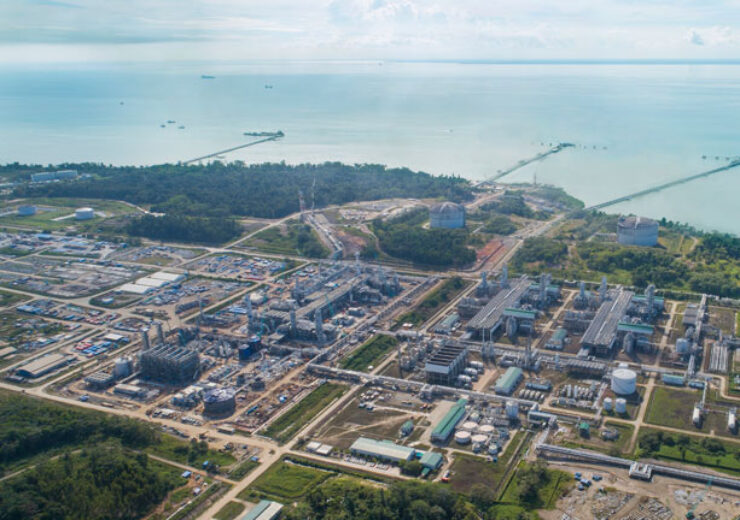The project is estimated to recover an additional of 1.3 trillion cubic feet (Tcf) of gas from both Ubadari and Vorwata fields

Tangguh LNG facility. (Credit: MITSUI & CO., LTD.)
Indonesian regulator SKK Migas has approved the plan of development (POD) for Ubadari field and Vorwata carbon capture utilisation and storage (CCUS) at the Tangguh LNG project.
The new development is estimated to recover an additional of 1.3 trillion cubic feet (Tcf) of gas from both Ubadari and Vorwata fields.
Production from the Ubadari field will be carried through Normally Unmanned Installations (NUI) connected to offshore pipeline to Tangguh facility.
The Vorwata CCUS development involves injection of nearly 25 million tonnes of CO2 back to the Vorwata reservoir to avoid carbon venting and provide incremental gas production through enhanced gas recovery (EGR).
The front-end engineering and design (FEED) for Ubadari field development and Vorwata CCUS is expected to commence in mid-2022, subject to Tangguh Partners’ and further SKK Migas’ approval.
The project is estimated to come online in 2026 subsequent to a final investment decision.
The project partners stated: “We will contribute to significantly reduce emission through Tangguh Project, in line with the Indonesian government’s effort to meet its Nationally Determined Contribution (NDC) commitment under the Paris Agreement, while serving as a National Strategic Project by the Government of Indonesia.”
Located in Papua Barat Province of Indonesia, the Tangguh LNG project is operated by BP Berau on behalf of the other production sharing contract partners as contractor to SKK Migas.
BP Berau and its affiliates in Indonesia own a 40.22% stake in the project.
Other Tangguh production sharing contract partners include MI Berau, CNOOC Muturi, Nippon Oil Exploration (Berau), KG Berau Petroleum, Indonesia Natural Gas Resources Muturi and KG Wiriagar Petroleum.
Currently, Tangguh is the largest gas producing field in Indonesia with 1.4 billion cubic feet (Bcf) per day of gas production.
The Tangguh LNG plant features two LNG trains and an under construction train 3, which is expected to increase the facility’s total capacity to 2.1Bcf per day, upon completion.
